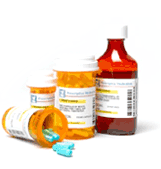 sedatives affect people differently, depending on the dosage. Lot of sedatives are on the market today that typically fall into the categories barbiturates and benzodiazepines. Barbiturates depress the central nervous system and the benzodiazepine affects the neurotransmitters in the brain and slows nerve impulses throughout the body. The most common use of barbiturates today is in anaesthesia and benzodiazepine is usually prescribed to relieve the tension, anxiety and stress. Both show similar signs of insufficient.
sedatives affect people differently, depending on the dosage. Lot of sedatives are on the market today that typically fall into the categories barbiturates and benzodiazepines. Barbiturates depress the central nervous system and the benzodiazepine affects the neurotransmitters in the brain and slows nerve impulses throughout the body. The most common use of barbiturates today is in anaesthesia and benzodiazepine is usually prescribed to relieve the tension, anxiety and stress. Both show similar signs of insufficient.Each person reacts differently to medications and each dose can affect people differently. Even low doses can lead to insufficient in some people, and they display unusual behaviour. Some of the symptoms may include drowsiness, memory impairment and motor skills, confusion, slurred speech, impaired vision and depression. For someone who has a low tolerance for drugs, they can present symptoms evil uncomfortable, such as nausea, constipation, the vomiting and diarrhea.
High doses of sedatives usually results in drowsiness, and extreme fatigue. However, it may also include other symptoms in addition to that of a lower dose. A person with a high result of sedatives can display any hostile or erratic behaviour, mood swings, of slowed reflexes or euphoria. The symptoms of sedation are often similar to the symptoms of someone who had too much alcohol.
Signs of insufficient can often be the same signs as someone taking a low dose, or high, but much of it depends on the individual. However, doses of sedatives over long periods of time can lead to a significant build-up in the tissues of the body, and symptoms may not appear for a few days. Signs generally include thinking with impaired memory and judgment, disorientation, confusion, slurred speech, a muscle weakness, lack of coordination.
Sedatives are highly addictive. a person can easily become addicted once that they build up a tolerance to the drug. Once a tolerance develops, the dosage is usually increases so the person can obtain the original effects of the drug. The risk of overdose increases dependence increases. Abuse of sedatives can lead to respiratory failure that can lead to death, and if them withdrawing the drug, it should be done slowly or there is a high risk to the painful or uncomfortable withdrawal symptoms.
Photo Credit Jupiterimages/Photos.com/Getty Images; Following reading: ehow.com Copyright © 1999-2011 Demand Media, Inc..It should not be used as a substitute for professional medical advice, diagnosis or treatment.
"≫ use of this web site constitutes acceptance of the eHow terms of use and privacy policy."


No comments:
Post a Comment